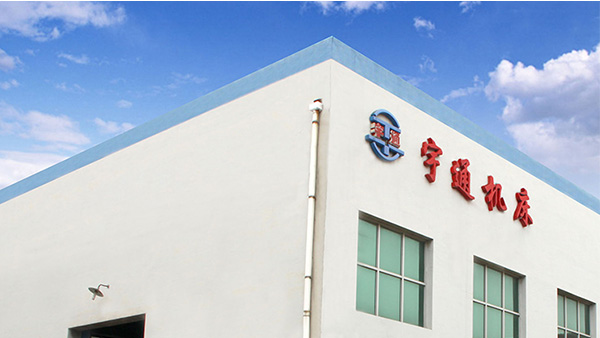
-
 Afrikaans
Afrikaans -
 Albanian
Albanian -
 Amharic
Amharic -
 Arabic
Arabic -
 Armenian
Armenian -
 Azerbaijani
Azerbaijani -
 Basque
Basque -
 Belarusian
Belarusian -
 Bengali
Bengali -
 Bosnian
Bosnian -
 Bulgarian
Bulgarian -
 Catalan
Catalan -
 Cebuano
Cebuano -
 Corsican
Corsican -
 Croatian
Croatian -
 Czech
Czech -
 Danish
Danish -
 Dutch
Dutch -
 English
English -
 Esperanto
Esperanto -
 Estonian
Estonian -
 Finnish
Finnish -
 French
French -
 Frisian
Frisian -
 Galician
Galician -
 Georgian
Georgian -
 German
German -
 Greek
Greek -
 Gujarati
Gujarati -
 Haitian Creole
Haitian Creole -
 hausa
hausa -
 hawaiian
hawaiian -
 Hebrew
Hebrew -
 Hindi
Hindi -
 Miao
Miao -
 Hungarian
Hungarian -
 Icelandic
Icelandic -
 igbo
igbo -
 Indonesian
Indonesian -
 irish
irish -
 Italian
Italian -
 Japanese
Japanese -
 Javanese
Javanese -
 Kannada
Kannada -
 kazakh
kazakh -
 Khmer
Khmer -
 Rwandese
Rwandese -
 Korean
Korean -
 Kurdish
Kurdish -
 Kyrgyz
Kyrgyz -
 Lao
Lao -
 Latin
Latin -
 Latvian
Latvian -
 Lithuanian
Lithuanian -
 Luxembourgish
Luxembourgish -
 Macedonian
Macedonian -
 Malgashi
Malgashi -
 Malay
Malay -
 Malayalam
Malayalam -
 Maltese
Maltese -
 Maori
Maori -
 Marathi
Marathi -
 Mongolian
Mongolian -
 Myanmar
Myanmar -
 Nepali
Nepali -
 Norwegian
Norwegian -
 Norwegian
Norwegian -
 Occitan
Occitan -
 Pashto
Pashto -
 Persian
Persian -
 Polish
Polish -
 Portuguese
Portuguese -
 Punjabi
Punjabi -
 Romanian
Romanian -
 Russian
Russian -
 Samoan
Samoan -
 Scottish Gaelic
Scottish Gaelic -
 Serbian
Serbian -
 Sesotho
Sesotho -
 Shona
Shona -
 Sindhi
Sindhi -
 Sinhala
Sinhala -
 Slovak
Slovak -
 Slovenian
Slovenian -
 Somali
Somali -
 Spanish
Spanish -
 Sundanese
Sundanese -
 Swahili
Swahili -
 Swedish
Swedish -
 Tagalog
Tagalog -
 Tajik
Tajik -
 Tamil
Tamil -
 Tatar
Tatar -
 Telugu
Telugu -
 Thai
Thai -
 Turkish
Turkish -
 Turkmen
Turkmen -
 Ukrainian
Ukrainian -
 Urdu
Urdu -
 Uighur
Uighur -
 Uzbek
Uzbek -
 Vietnamese
Vietnamese -
 Welsh
Welsh -
 Bantu
Bantu -
 Yiddish
Yiddish -
 Yoruba
Yoruba -
 Zulu
Zulu
Custom Flat Die Thread Rolling Machines for Precision Manufacturing and Enhanced Thread Quality Solutions
Custom Thread Rolling Machine with Flat Die An Overview
Thread rolling is a crucial manufacturing process in producing high-strength threads on various materials. As industries progress, the demand for precision-engineered components has led to the development of specialized machinery designed to meet specific requirements. One such innovation is the custom thread rolling machine equipped with flat dies. This article explores the working principles, benefits, applications, and key considerations associated with these machines.
Understanding Thread Rolling
Thread rolling is a cold-forming machining process that creates threads without removing material. Instead, it deforms the workpiece using two or more dies, which apply pressure and shape the metal to produce the desired thread profile. This method offers several advantages, such as improved mechanical properties, reduced machining time, and less waste compared to traditional cutting methods.
The Role of Flat Dies
Flat dies are an essential component of thread rolling machines. They differ from other die types, such as cylindrical or planetary dies, in their configuration and operation. Flat dies allow for a wider range of material thicknesses and provide a more straightforward construction, which makes them ideal for custom applications. The design of these dies can be tailored to meet specific thread profiles, ensuring optimal performance across various materials, including steel, aluminum, and other alloys.
Advantages of Customization
One of the most significant benefits of a custom thread rolling machine with flat dies is the level of customization available. Manufacturers can adjust several parameters to meet the unique needs of their production processes. Variables such as die shape, material compatibility, thread pitch, and rolling speed can all be customized. This flexibility enables businesses to produce a broader range of products while maintaining high quality and precision.
1. Enhanced Quality Custom machines can ensure tighter tolerances and improved surface finishes, which are critical in industries like automotive and aerospace. 2. Increased Efficiency By customizing the machinery to specific thread types and materials, manufacturers can significantly reduce production time and costs. This efficiency can lead to higher output and a better return on investment.
3. Material Utilization Custom designs often lead to better material utilization, minimizing waste and maximizing yield, which is increasingly important in sustainable manufacturing practices.
Applications
custom thread rolling machine flat die

Custom thread rolling machines with flat dies are widely used across numerous sectors
. Some common applications include- Fastener Production Industries that produce bolts, screws, and nuts benefit greatly from this technology, as it provides strong, durable threads essential for structural integrity. - Automotive Components Custom-threaded parts, such as valve bodies and connectors, are critical for vehicle assembly, where precision and strength are vital.
- Aerospace The aerospace industry demands parts with stringent requirements for reliability and performance, making custom thread rolling machines highly valuable.
Key Considerations
When investing in a custom thread rolling machine, there are several factors to consider
1. Material Compatibility Ensure that the machine is capable of processing the materials commonly used in your applications.
2. Thread Specifications Clearly define the types of threads you intend to produce to facilitate the design of appropriate dies.
3. Maintenance and Support Select a manufacturer that offers ongoing support and maintenance services to keep the machine running efficiently.
4. Automation and Technology Consider machines that incorporate the latest technologies for monitoring and automation, enhancing productivity and quality control.
In conclusion, custom thread rolling machines with flat dies represent a pivotal advancement in the manufacturing industry. Their ability to create high-quality, precisely engineered threads efficiently makes them invaluable across various applications. As industries demand greater customization and efficiency, these machines will continue to play a crucial role in modern manufacturing.
